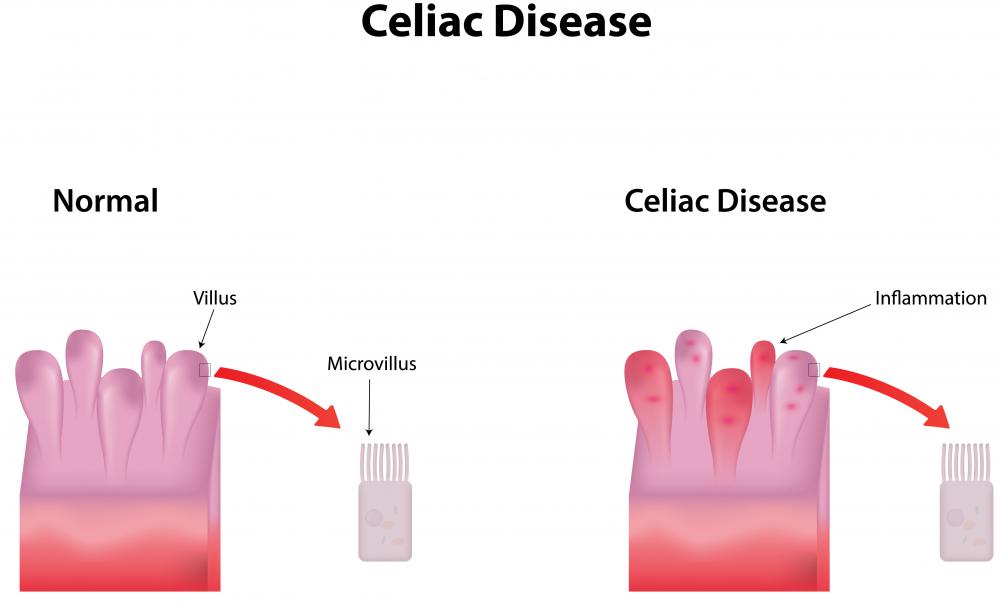At WiseGEEK, we're committed to delivering accurate, trustworthy information. Our expert-authored content is rigorously fact-checked and sourced from credible authorities. Discover how we uphold the highest standards in providing you with reliable knowledge.
How do I Choose the Best Intestinal Treatment?
The intestines, sometimes referred to as the bowels, form a portion of the alimentary canal. The intestines form the lower portion, connecting the stomach to the anus. The two sections of the intestines are the large intestine or colon and the small intestine. Intestinal treatments, then, are the medical response to intestinal disorders or diseases, and the best intestinal treatment is highly dependent on what medical condition is afflicting the intestines. Problems for which people seek intestinal treatment include bowel twist, celiac disease, colorectal cancer, Crohn’s disease, diverticulosis and diverticulitis, endometriosis, gastroenteritis, irritable bowel syndrome (IBS), polyps, parasites, and ulcerative colitis.
Bowel twists can result from volvulus, in which the intestine twists around itself or small-bowel obstructions in which a portion of the bowel twists around adhesions. In either case, the condition known as strangulation, in which the blood supply is cut off—can occur. In the first case, a colonoscopy or a sigmoidoscope can sometimes untwist the volvulus. If not, and in the second case, surgery is necessary to prevent gangrene.

Celiac disease—also called celiac or nontropical sprue or Gluten-sensitive enteropathy—is gluten intolerance. The intestinal treatment best suited to this disease is avoidance of gluten, which means avoiding ingestion of wheat, barley, and rye. and products containing them. Intestinal treatment of colorectal cancer presents quite a different picture. It may involve chemotherapy, radiation, surgery, or a combination of treatments.

Crohn’s disease, also called regional enteritis or regional ileitis, is inflammation of the digestive system. The range of treatments include nutrition supplements, medicine, surgery, or a combination of treatments. Remission can occur for long periods.
Diverticulosis may have no symptoms and require no treatment. If symptoms do occur, the treatment may simply be a high-fiber diet and mild pain killers as needed. Diverticulitis, on the other hand, is an infection, and because it can lead to tears or blockages in the large intestine, must be treated. Often this means a course of antibiotics and resting the colon, but a hospital stay can sometimes be necessary.

Gastroenteritis may require no treatment beyond staying hydrated. Irritable Bowel Syndrome (IBS) requires a different sort of intestinal treatment: long-term diet changes, stress management, and sometimes medicine. Colonic polyps may well require no intestinal treatment, but they can become cancerous, so they are checked during colonoscopies.
Intestinal parasites, which may result from contaminated water or food, sexual contact, or contact with animals. Medicines are available for treatment. Ulcerative colitis is one of the inflammatory bowel diseases. Treatment can involve drugs, and long periods of remission can occur. In very severe cases, the colon is surgically removed.
AS FEATURED ON:
AS FEATURED ON:
















Discuss this Article
Post your comments